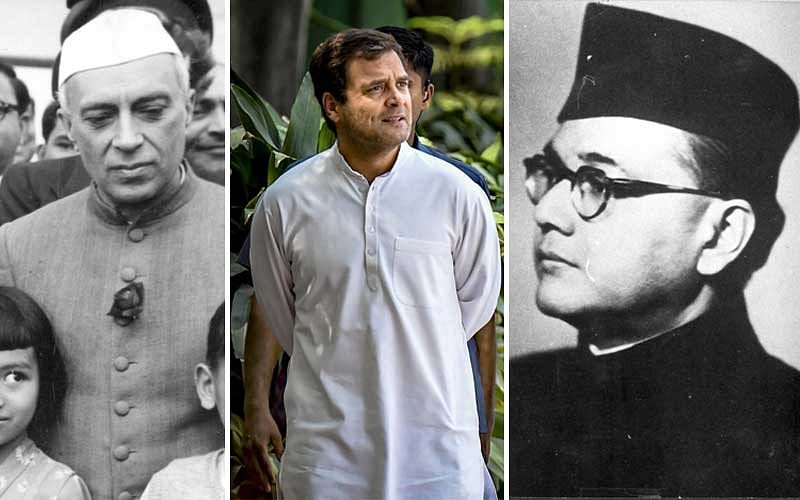When Congress president Rahul Gandhi promised 'NYAY' for the downtrodden, he appeared to have taken a leaf out of an idea Subhash Chandra Bose and his great grandfather Jawaharlal Nehru which they espoused some 80 years ago.
It was the initiative of freedom fighter Bose, who was Congress president in 1938, to form a National Planning Commission under Nehru, which led to emphasising the "aim to ensure adequate standard of living for the masses".
If Rahul has now made the poll promise -- NYAY or Nyunatam Aay Yojana (Minimum Income Guarantee Scheme) -- of ensuring an annual income of Rs 72,000 to every poor household, the committee under Nehru had suggested the need for Rs 216-300 as minimum income in the late 1930s and early 1940s.
The abstract on the deliberations of National Planning Committee, which could not complete its work before Independence as Nehru and others were arrested during Quit India movement, Nehru's Discovery of India and journalist M Chalapati Rau's biography 'Jawaharlal Nehru' give a glimpse into the thinking in Congress then.
The panel was formed by Bose as he was not convinced with Mahatma Gandhi's economic philosophy and wanted an emphasis on industrialisation, a view echoed by Nehru who wrote to panel members that Congress while improving cottage industry was not against industries.
In a 'Note for the Guidance of Sub-Committees of the National Planning Committee', the panel had said that an adequate standard of living implies a certain "irreducible minimum plus a progressive scale of comforts and amenities".
"Estimates of economists in different parts of India put down this irreducible minimum at figures varying from Rs 18 to Rs 25 per capita per month in the present value of the rupee. The expression in terms of money is only used for the sake of convenience, the real measure being in terms of goods and services," the note had then said.
While estimating the average per capita annual income at Rs 65 during that period with the poor's income further down at Rs 30 annually, it had then said the national income must, therefore, be increased greatly during the next ten years to ensure an irreducible minimum standard for everybody.
In 'Discovery of India' Nehru wrote, "we calculated that a really progressive standard of living would necessitate the increase of the national wealth by 500-600%. That was, however, a huge jump for us, and we aimed at a 200-300% increase within 10 years." He had said the Rs 18-25 per month income was pre-war figures.
However, the committee could not finish its work as leaders like Nehru and others were arrested during the Quit India movement. The report in part was published only in 1947.
The panel also did not have a smooth run as supporters of socialist and big business approaches on policy clashed. The members of the panel included M Visvesvaraya, Purshottamdas Thakurdas and Dr Meghnad Saha among others.
In his book, Rau had said even provincial governments in British India were not keen on the exercise and some even in Congress looked upon the committee as an “unwanted child not knowing how it would grow and suspicious of its future activities”.
“...Big business was definitely apprehensive and critical and probably joined (the committee) up because it felt that it could look after its interests better from inside the committee than from outside,” Rau wrote.

